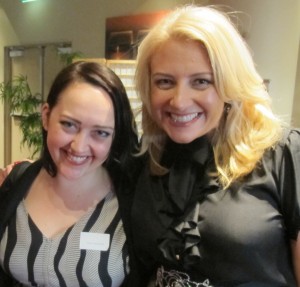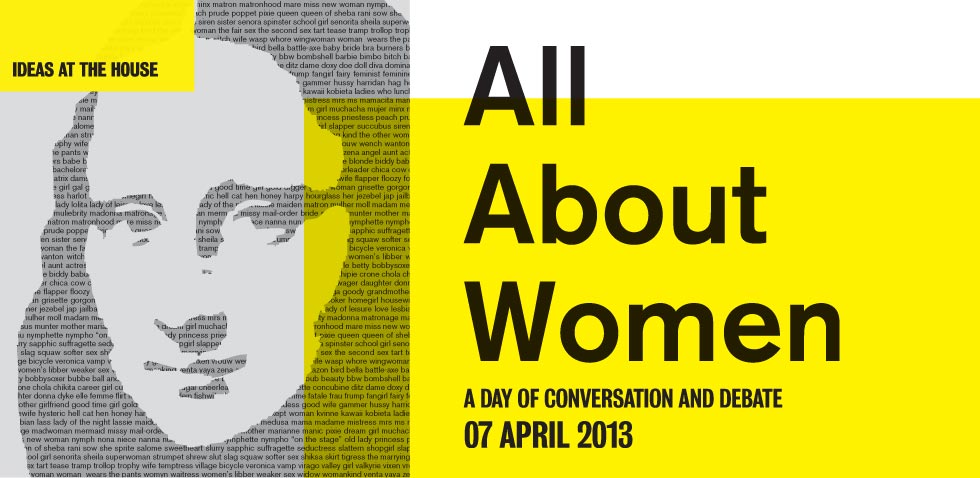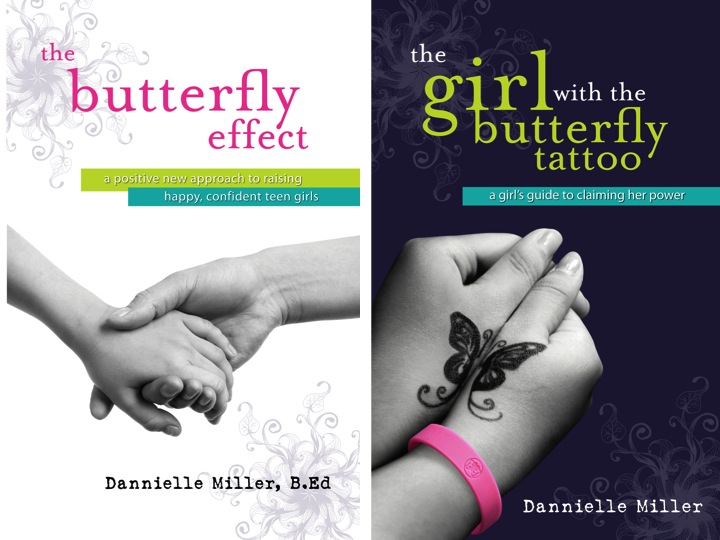The following post was written by Emily Maguire for this month’s Girlfriend Magazine. Regular readers will know I am a huge fan of Emily’s work, and particularly of her fabulous guide for young women, “Your Skirt’s Too Short : sex, power choice.” I was deeply honoured when Emily agreed to launch my own guide for teen girls, “The Girl With The Butterfly Tattoo – A girl’s guide to claiming her power.” You may read the passionate, articulate and thought-provoking speech Emily gave at this launch here: Celebrating The Awesomeness Of Teen Girls.
I was delighted to have been interviewed for the following article as I think many parents will find helpful in supporting their daughters to move beyond limiting stereotypes – including those that would have us betray our girlhood.
Previous posts which explore similar themes may also interest: Barbie’s not an issue if girls can think for themselves ( co-written with Nina Funnell and originally published in the Sydney Morning Herald), and It’s time to reclaim the power of pink, a guest post by Clementine Ford which was originally published in Daily Life.

Earlier this year, after winning her Best Actress Oscar, Jennifer Lawrence gave a press conference in which she answered some seriously dumb questions with kick-arse humour. Her performance was widely praised, but it was the response from Aussie pop culture site Pedestrian TV that was really striking. The entire press conference, they wrote, was ‘an exercise in being a dude’.
Now, they weren’t insulting JLaw or implying she looked anything less than feminine; they were paying her a compliment by declaring that she had moved beyond being a mere girl and into the realm of dude-ishness.
It’s the kind of compliment that the teenaged me would have killed for. All I wanted was to be ‘one of the boys’, because I thought that meant being cooler, smarter and all around better than other girls.
Katie, 19, can relate. A few years ago it was a point of pride that she hung out with dudes, wore sneakers and hated pink. She remembers noticing that boys used ‘girl’ as an insult and hassled each other by saying ‘oh, look that’s your favourite colour’ whenever they saw something pink. ‘Of course at fifteen you want to be liked by boys and don’t want to be seen as lesser than them,’ Katie says. So for her, rejecting girliness was a case of ‘if you can’t beat ‘em, join ‘em’.
For me, the habit of equating maleness with awesomeness started very young. In the books I loved, the female characters were duller than dull. They stood in towers watching their own hair grow or spent their days cleaning up after dwarves or step-sisters. When I daydreamed about living the stories I read, I was always a boy, because a boy was always the hero.
Many little girls today are getting the same message. According to the Geena Davis Institute of Gender in Media only 29.2 percent of characters in kids films and TV shows are female. And to make it worse, many of those characters play no role in the story except, as Davis puts it, ‘as eye candy’.
It’s not only kids’ shows, though. Joanne Rowling, creator of Harry Potter, was told by her publisher to follow the path of many other female writers and publish her books under her initials so that readers wouldn’t be put off by the apparently awful fact that a woman had written them. Meanwhile, in our national capital, government minister Kate Ellis (who is young, pretty and always nicely dressed) has faced catcalls of ‘here comes the weather girl’ when speaking in parliament.
Even female pop icons get in on the girl-trashing game. When Katy Perry wants to insult an unreliable, moody guy she accuses him of acting ‘like a girl’, and Taylor Swift differentiates herself from her rival by comparing her own tomboy style (T-shirts and sneakers) to the other girl’s penchant for short skirts and high heels.
Of course some girls do feel more comfortable in jeans than dresses, and plenty of us enjoy hanging out with our dude pals, and that’s fine. This isn’t about girly vs tom-boy style, but about the fact that many people seem to think being overtly feminine means being dull or dumb. You can’t help being female, this line of thought goes, but if you want to be taken seriously you should try very hard to not be too girly about it.
It’ a problem 15 year-old Hannah is used to confronting. ‘I love pink. I love sparkles. I love fluffy pens and hair-clips and sticking butterflies on everything.’
What Hannah doesn’t love, is the assumption that she’s stupid because of her ultra-girlish appearance. ‘One of my teachers calls me ‘Princess’, which might sound nice, but he says it in a really sarcastic way. It’s frustrating because I’m actually good at that subject, but he treats me like an idiot anyway.’
Disturbingly, Hannah’s experience of being belittled by an adult is not unusual. Indeed, Dannielle Miller, author of The Girl with the Butterfly Tattoo: a girl’s guide to claiming her power reckons that putting down girliness is more of a problem with adults than amongst girls themselves. After all, it’s adults – not girls – making movies where girls are only there to be pretty, writing girl-insulting songs, denigrating female MPs and treating pink-loving students as if they’re stupid.
Miller thinks most girls understand that ‘the glitter and frills are a thin veneer; underneath that they can still be feisty and fierce.’ But even if you understand that, it can be hard to express yourself in a way that you know may cause others to look down on you. Miller’s advice is for girls to ignore the haters and stay strong. ‘Playing around with identity is fine. Don’t let anyone judge you on it.’
It’s advice Katie has taken to heart. Nowadays, she happily gets ‘dolled up’ in a way she never would have when she was younger. ‘I do get concerned that people might label me as “vain” or “dumb”, but I know that’s not the truth, so I just do what I want.’
So go ahead: wear a sparkly unicorn onesie and eat pink cupcakes while giving your girlfriends makeovers. Or don’t, because that’s fine, too. But the next time someone compliments you by saying you’re just like a guy, compliment him right back by telling him he’s so awesome, you’re going to make him an honorary girl.

 As we come up to Mother’s Day, I have decided it’s time to celebrate that often dreaded period of motherhood: a daughter’s teen years. If this is the life phase you happen to be in, I’m sure you’ve found yourself in this situation: you’re standing around with other parents at a backyard barbecue and the topic of parenting teen girls comes up. There is some eye-rolling, quite a bit of sighing and a fair dose of judgment. The best you can hope for is to just get through the teen years, just survive them, is what people usually say. You may have even found yourself nodding along in agreement. But this Mother’s Day I want to hit the pause button and inject a new word into that conversation: love.
As we come up to Mother’s Day, I have decided it’s time to celebrate that often dreaded period of motherhood: a daughter’s teen years. If this is the life phase you happen to be in, I’m sure you’ve found yourself in this situation: you’re standing around with other parents at a backyard barbecue and the topic of parenting teen girls comes up. There is some eye-rolling, quite a bit of sighing and a fair dose of judgment. The best you can hope for is to just get through the teen years, just survive them, is what people usually say. You may have even found yourself nodding along in agreement. But this Mother’s Day I want to hit the pause button and inject a new word into that conversation: love.


